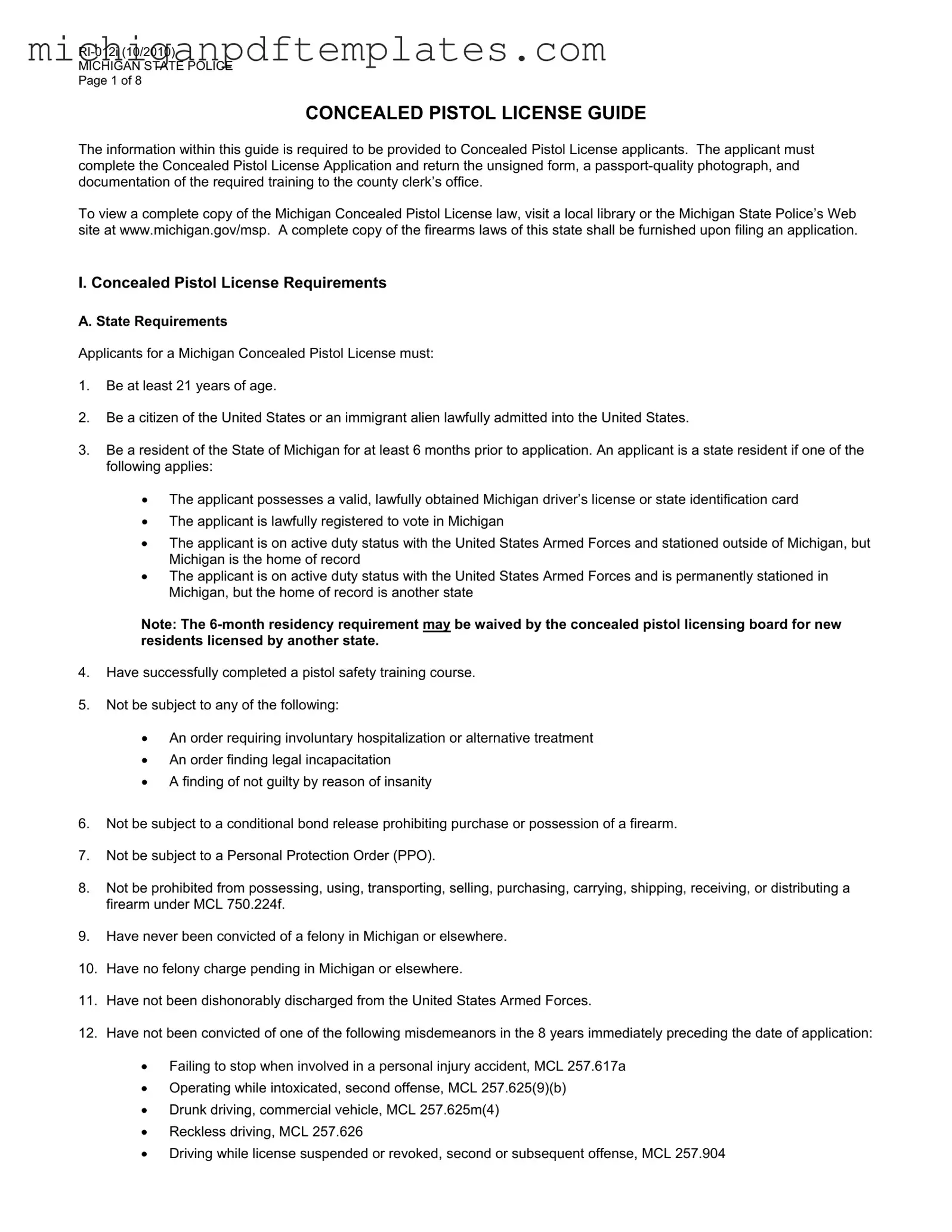Fill in Your Michigan Ri 012 Form
The Michigan RI-012 form is a crucial document for individuals seeking a Concealed Pistol License in the state. This form requires applicants to provide essential information, including proof of training and residency, to ensure compliance with state regulations. Completing the form accurately is vital for a smooth application process; for assistance, please fill out the form by clicking the button below.
Get Your Form Now

Fill in Your Michigan Ri 012 Form
Get Your Form Now

Get Your Form Now
or
▼ PDF Form
Finish this form quickly and move on
Fill in and complete Michigan Ri 012 online quickly.